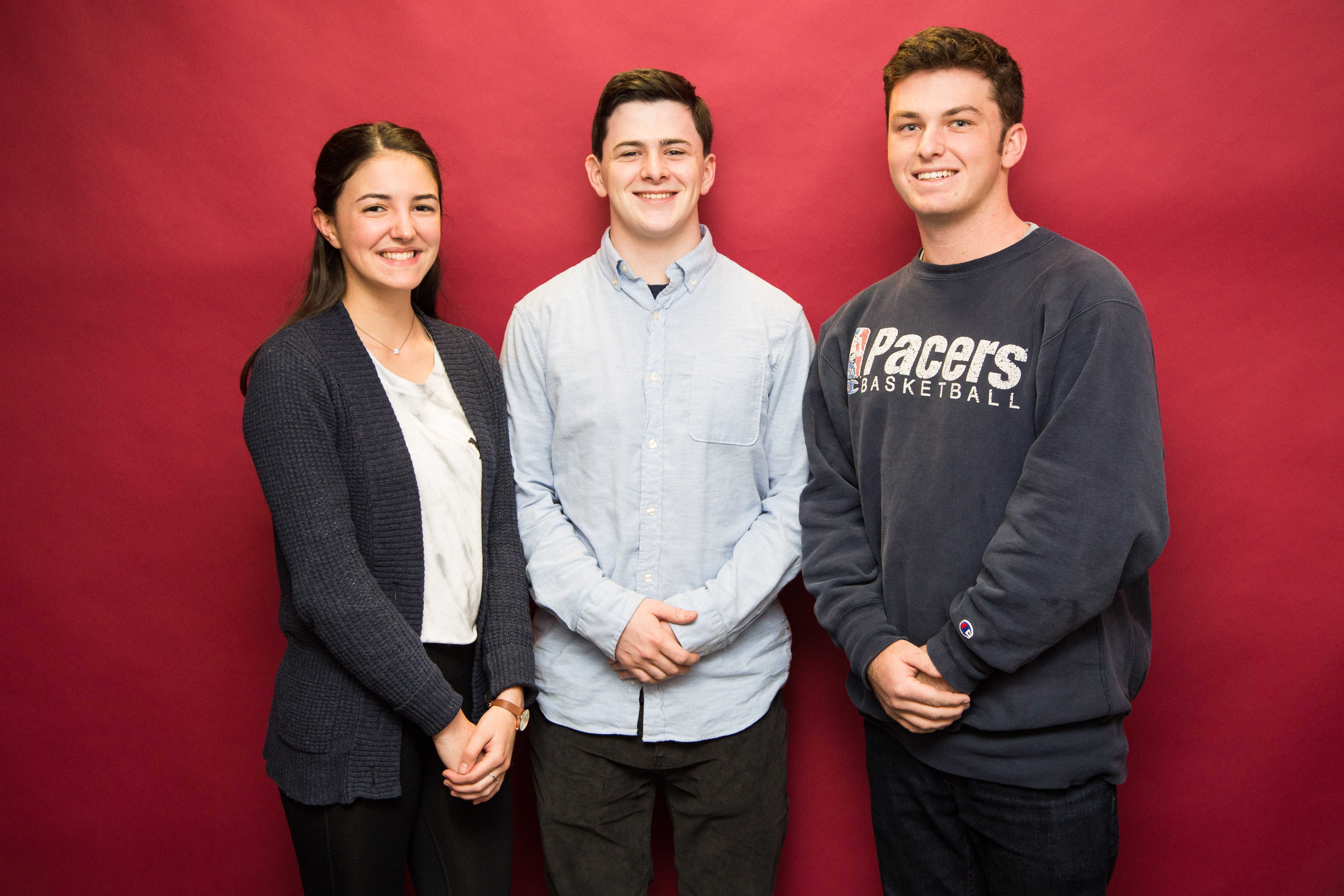New Honors Student Advisory Council
St. Joe’s students created an Honors Student Advisory Council in fall 2017 to provide feedback to the university’s Honors Program and to help more students succeed in the program. While the Honors Program seeks to provide rigorously intellectual studies, some found it difficult to schedule around the program’s academic requirements and found the social aspect to be lacking.
George Frattara ’20, president of the council, created the organization to focus on improvements.
“This would be a way to unify and serve as one voice for students of the program,” Frattara said.
The council consists of former, current and prospective members. Their goal is to brainstorm not only academic changes, but social and civic opportunities for members.
Economics and international relations major Noah Henderson ’20, treasurer, and biology major Isabella Succi ’20, vice president, are also part of the executive board.
“This council would focus on growing the community aspect of the program [and] bringing everyone together,” Frattara said.
Henderson is a former member of the Honors Program and said the council will help students meet requirements, with one new idea being a mentorship program.
“It [a mentorship program] could’ve helped me,” Henderson said. “That would be a great way to get freshmen who are new to college, in a new environment, on the right path.”
The council has been in contact with similar honors councils from other universities to provide guidance for the new organization. Frattara and Henderson said a vision for the program would be for it to have a bigger impact on campus.
“Just getting the name out there of the Honors Program, bettering the name of the Honors Program, is all we could hope for, and hopefully some of the ideas we have could lead to that,” Henderson said.

(Photo by Luke Malanga ’20).
Joseph Corabi, Ph.D., director of the Honors Program, said the new student council will help the program improve and achieve its goals.
“The main benefit [of the council] I see is some students particularly who are not as outspoken would feel more comfortable giving feedback to an honors council rather than coming to me,” Corabi said. “I really value getting accurate feedback about the program.”
There are currently about 250 students in the Honors Program, according to Corabi. There’s a little fluctuation in this number year-to-year, but the percentages across the student body are similar.
Despite the number of students who graduate with honors, some students choose not to continue with the program due to issues such as lack of course offerings and social activities, which the council hopes to overcome.
Brooks Lloyd ’18, finance and economics double major, took one honors course his first year. However, Lloyd said he searched the next few semesters for honors business courses but struggled to find one that fit his needs.
“I thought none of these would interest me or were in my area of expertise,” Lloyd said.
The limited amount of honors courses discouraged Lloyd from continuing with the program, so he said he chose to focus on his double major rather than try to catch up with the honors requirements.
Actuarial science major Rachel DeLuco ’18 is another former member of the Honors Program who could not continue due to the lack of academic availability in her schedule.
“At a certain point, there just weren’t any honors classes available that I could take that weren’t completely unnecessary,” DeLuco said.
Looking to the future, DeLuco said she hopes the Honors Program and new council can encourage a stronger, more cohesive community for honors students.
“I’m optimistic, because I don’t think they had a council a few years ago, so they’re definitely trying something different,” DeLuco said. “Hopefully they’ll listen.”












































